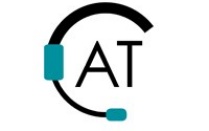Step 4.4
Implement Intellectual Property (IP) strategy in collaboration with patent attorney, technology transfer office, or relevant agents.
Primary findings
Primary findings
Barriers
Factors that may negatively influence the likelihood that an academic/researcher will patent their work include, reliance on internal university funding (as opposed to private funding), and a research focus in the fields of physics, earth sciences, mathematics and statistics (as opposed to life sciences) — based upon an examination of six fields, physics, mathematics and statistics, chemistry, computer science, earth sciences, and life sciences.
How academics manage their portfolio of knowledge transfer activities.
(View full citation)
Carriers
Factors that may positively influence the likelihood that an academic/researcher will patent their work include, a rise in the experience, reliance on private funding (as opposed to internal university funding), increased novelty of their research (significant changes in materials or production techniques), increased network assets, greater size of their research unit, and when they are affiliated with large research universities (rather than small and medium ones) — based upon an examination of six fields, physics, mathematics and statistics, chemistry, computer science, earth sciences, and life sciences.
How academics manage their portfolio of knowledge transfer activities.
(View full citation)
Interpersonal dynamics like trust, identity, status, special distance and management structures influence participation in collaborations.
Non-experimental study
(View full citation)
Methods
Milestone checkpoints must address not only major technical and commercial milestones, but legal and intellectual property issues as well.
Conclusions drawn from case studies and experience.
(View full citation)
Tips
Alliances involving technology acquisition must ensure they have a sound business case where the purpose of the alliance is clearly defined and any Intellectual Property (IP) issues are carefully described and discussed. IP issues are particularly important when the acquired know-how needs to be customized to the NPD context. This may create co-invention scenarios where claims and ownership can become issues.
Literature review, author's industry experience with case study.
(View full citation)
Close collaboration with suppliers and customers may put ownership of intellectual property at risk. Ensure that all IP issues are identified and resolved internally, with proper protections in place, before disclosing proprietary information to external partners. Execute agreements with these partners that explicitly state ownership of the IP.
Conclusions drawn from case studies and experience.
(View full citation)
One of the policies or practices a university should consider when embarking on the establishment of a spin-off company with industry to effect knowledge/technology transfer is to clarify intellectual property ownership and distribution of profits.
Literature review.
(View full citation)
One of the policies or practices a university should consider when embarking on the establishment of a spin-off company with industry to effect knowledge/technology transfer is to clearly establish criteria regarding responsibilities associated with spin-off losses or debt.
Literature review.
(View full citation)
One of the policies or practices a university should consider when embarking on the establishment of a spin-off company with industry to effect knowledge/technology transfer is to ensure that academic and administrative staff involvement will not violate contract or regulatory law.
Literature review.
(View full citation)
One of the policies or practices a university should consider when embarking on the establishment of a spin-off company with industry to effect knowledge/technology transfer is to ensure that the university receives a free and perpetual license to use products or services developed by the spin-off.
Literature review.
(View full citation)
One of the policies or practices a university should consider when embarking on the establishment of a spin-off company with industry to effect knowledge/technology transfer is to ensure the university’s involvement does not represent any conflict-of-interest with its mission or mandate, or any violation of non-competition regulations.
Literature review.
(View full citation)
One of the policies or practices a university should consider when embarking on the establishment of a spin-off company with industry to effect knowledge/technology transfer is to require participation of the university in the valuation of the spin-off.
Literature review.
(View full citation)
One of the policies or practices a university should consider when embarking on the establishment of a spin-off company with industry to effect knowledge/technology transfer is to set clear and legally-binding criteria that regulate the use of university logos and trademarks.
Literature review.
(View full citation)
